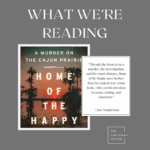miCRo: Seventeen Fouettés by Mark Wagenaar
Mark Wagenaar’s piece, “Seventeen Fouettés,” brilliantly shows us how violence juxtaposed with art and poetic language can infuse even the saddest of situations with hope.
miCRo: “From an Agnostic” by Kyle Carrero Lopez
Parentheses usually indicate a digression, a nonessential thought, language without grammatical relation to its surroundings. Yet through them Lopez reshuffles the possibilities, demonstrating that what has been erased or discarded is often what is most essential, and ultimately questioning narrative-formation itself.
miCRo: “No Horses” by Erin Slaughter
The first line in Erin Slaughter’s poem “No Horses” is an answer to an unasked question: “Because giving pleasure is less vulnerable / than receiving.” In a tangle of image and interruption, the poem circles an unspoken force.
miCRo: “Compensation” by Ken Poyner
In “Compensation,” Ken Poyner shows us how improbable relationships can become possible once we accept that complexity can be as beautiful as harmony.
miCRo: “The Therapist Asks, How Does the Brain Feel” by Prince Bush
“The Therapist Asks, How Does the Brain Feel” is an evolving answer, a rickety list, a masterclass in the semicolon.
miCRo: Two microfictions by Matt Greene
Matt Greene’s microfictions take up the generation-defining question: how do we make sense of our place within an eroding world?
miCRo: Two pieces by Barbara Black
From their first sentences to their last, “Needlework” and “Gotunabe” pull the reader in with their odd, satisfying images. Drink these wonderful pieces up.
miCRo: “Retail Therapy” by Molly Bess Rector
In Molly Bess Rector’s poem “Retail Therapy,” lonely girls go shopping. Across reflecting couplets, the surface of a lake in summer morphs into a department store window. Behind the window grows a garden of what was and what could be: “Oh, to dress / beyond ourselves.”
miCRo: “Kim” by Koss
This piece is invested in collapsing time, in freeze-framing and rewinding inexplicable violence.
miCRO: “Eid al-Adha” by Latifa Ayad
In less than 500 words, Ayad’s sweeping essay takes us from the speaker’s mother’s baklava to the rams sacrificed on the family’s farm to the “grapey surface” of a “dissected sheep’s eye.”
miCRo: Two pieces by Ji Yun (1724-1805)
In these translations, readers must counter assumptions about who provides narrative resolution and begin new understandings of old symbols as meaning accumulates and distills through the language.
miCRo: “Well Done, Middle School Administrators” by Julie Jones
This wicked sharp dreamscape begins with our tween-boy narrator and his father being chased through a middle school by a bear.


















